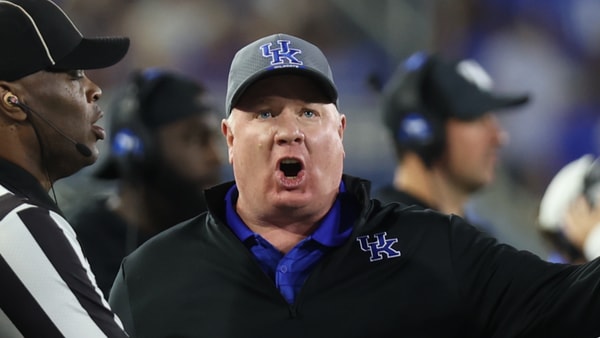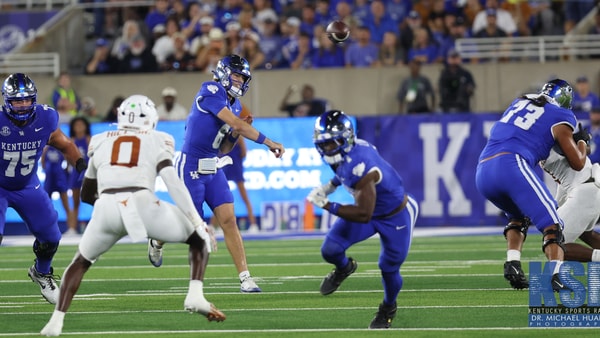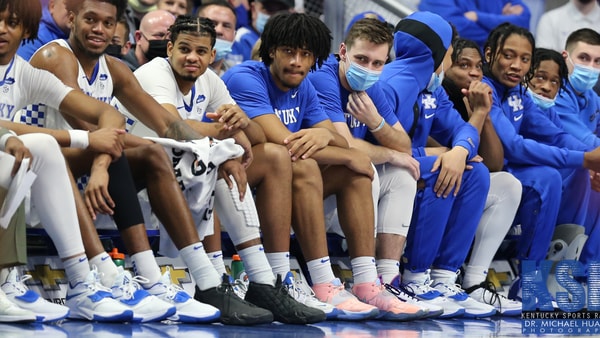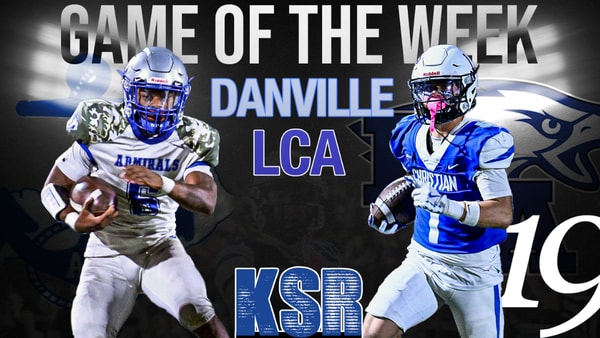A Hands-on Preview of "Holding On: The Troubled Life of Billy Kerr"

It’s already been a long night for you and the rest of the Palliative Care Team. The sun is rising when the Head Nurse calls you into a side ward. ‘This one’s tough,’ she says as you enter. ‘Here,’ – she hands you a chart. Patient’s name, Billy Kerr; age, 60; taken off a flight from Sydney to London following a massive heart attack. ‘A weaker man would be dead already. I think we have to be prepared for the worst. I want you and your team to make sure his remaining days are as comfortable as they can be.’-Opening lines of the "Holding On: The Troubled Life of Billy Kerr" rulebook
Very few times have I attended a gaming convention and felt the need to actually reserve a spot to demo a game. However, when I heard about the unique game "Holding On - The Troubled Life of Billy Kerr" coming from HUB Games, I knew I needed to give this a shot. The game looked to me as part "story discovery" and part "hospital simulation". I was able to get a chance to sit down in a playable demo on Friday morning of the Origins Gaming Convention this past June. Michael, who demoed the game for us, stated that there are 10 parts of the story to play through, all being fully replayable. In a world where legacy games exist, with tearing up of pieces, as well as secrets/spoilable information, having a game with story that you can play with different people at different times is a great feature to have. After getting a full play through of the first scenario, I thought I would share a little about how the game works, along with some of the features I thought really shined in the demo.
The Hospital Simulation
[caption id="attachment_244334" align="alignnone" width="600"] via Boardgamegeek.com[/caption]
Where this game initially clicked with me was in the rules regarding managing and staffing the hospital. I think this is one of the few medical "sims" that actually gets managing your shifts at the hospital correct. My wife is a doctor and medical resident, so I hear often about changing over on shifts, as well as the stress involved in the long days when you're needed for more than you're scheduled for.
In any given round/day (at least in the first scenario) of Holding On, one player takes the role of the shift manager. Each "day" consists of a morning, afternoon, and night shift. The shift manager will flip over the first card for the morning shift, and will have to assign 1-3 players to the shift, based on the severity of Billy's needs. The players assigned to that shift are the only ones who can make the decision on how to treat Billy that turn, whether with medical or palliative care. Once per day, you must perform medical care on Billy, otherwise the hospital gives you a warning (two warnings and Billy gets transferred to another ward and you lose). Then, you do the same for the day and night shifts, assigning staff and performing medical or palliative care.
You care for Billy with Care Tokens. When performing medical care, you cover the necessary spaces with care tokens to prevent his health from getting worse. Sometimes Billy will be stable, and if you cover the stable markers with care tokens, his health gets better. You can acquire more care tokens during palliative care, being on night shift, or any for unassigned staff in the break room at the end of the day. When performing medical care, you need to be able to cover each red deterioration slot with a care token. For each one that you can't cover, Billy goes down in health. If his health ever reaches zero, he dies and you lose the scenario.
Earlier I mentioned stress, which is a big feature in this game. If you are ever required to cover more than one shift in a day, you gain stress. Sometimes Billy has medical emergencies that need multiple nurses to even perform medical care... and you have to answer the call. When a nurse gains stress, a red ring is placed over the pawn, which physically symbolizes bearing the load of the stress on your shoulders. Such a small touch, but a wonderful visual representation. When you gain stress, you must get rid of care tokens, partial, or clear memories, setting you back in the game. If you ever become "overstressed", at the end of that work day, you are sent home and are unavailable for the next day. If the person to be shift manager next round is sent home, you get a warning from the hospital.
via Boardgamegeek.com[/caption]
Where this game initially clicked with me was in the rules regarding managing and staffing the hospital. I think this is one of the few medical "sims" that actually gets managing your shifts at the hospital correct. My wife is a doctor and medical resident, so I hear often about changing over on shifts, as well as the stress involved in the long days when you're needed for more than you're scheduled for.
In any given round/day (at least in the first scenario) of Holding On, one player takes the role of the shift manager. Each "day" consists of a morning, afternoon, and night shift. The shift manager will flip over the first card for the morning shift, and will have to assign 1-3 players to the shift, based on the severity of Billy's needs. The players assigned to that shift are the only ones who can make the decision on how to treat Billy that turn, whether with medical or palliative care. Once per day, you must perform medical care on Billy, otherwise the hospital gives you a warning (two warnings and Billy gets transferred to another ward and you lose). Then, you do the same for the day and night shifts, assigning staff and performing medical or palliative care.
You care for Billy with Care Tokens. When performing medical care, you cover the necessary spaces with care tokens to prevent his health from getting worse. Sometimes Billy will be stable, and if you cover the stable markers with care tokens, his health gets better. You can acquire more care tokens during palliative care, being on night shift, or any for unassigned staff in the break room at the end of the day. When performing medical care, you need to be able to cover each red deterioration slot with a care token. For each one that you can't cover, Billy goes down in health. If his health ever reaches zero, he dies and you lose the scenario.
Earlier I mentioned stress, which is a big feature in this game. If you are ever required to cover more than one shift in a day, you gain stress. Sometimes Billy has medical emergencies that need multiple nurses to even perform medical care... and you have to answer the call. When a nurse gains stress, a red ring is placed over the pawn, which physically symbolizes bearing the load of the stress on your shoulders. Such a small touch, but a wonderful visual representation. When you gain stress, you must get rid of care tokens, partial, or clear memories, setting you back in the game. If you ever become "overstressed", at the end of that work day, you are sent home and are unavailable for the next day. If the person to be shift manager next round is sent home, you get a warning from the hospital.
Discovering Billy Kerr's Story
[caption id="attachment_244335" align="alignnone" width="600"] via Boardgamegeek.com - m1ke_best[/caption]
If the hospital management portion wasn't already exciting enough, we do all of this work so that we can find out more information about the life of our patient, Billy Kerr. In fact the very first scenario objective is "Unearth some basic information about your new patient." The goal of the objective is that we must find at least 1 CLEAR memory in each timeline (1-5) of Billy's Collected Memories.
When performing palliative care (as opposed to medical), you are usually presented the option of either taking a care token, or talking to Billy. If you take the opportunity to talk to Billy, a different player other than yourself will take the deck of partial memories, which represent Billy reluctantly telling you about himself, with the cards bearing pictures that are hazy apart from the actual image of Billy. The player with the partial memory deck will shuffle the cards, draw the card from the bottom of the deck and keep it face down, but will read Billy's quote of his recollection. These will be revealed at the end of the round, unless you have to give it back due to taking on stress.
At the end of the round, you will flip over any revealed partial memories, and place them in their designated timelines under the board in a 5x6 grid. Each timeline represents a particular moment in Billy's life. Throughout the game, you try and flesh out this grid with partial memories, until you feel comfortable enough to try for a Clear memory. Some shifts allow you to inquire about Billy's partial memories to uncover the clear memory. If you do so, another player will take the clear memory deck, and after you you say which timeline you are trying to inquire about, they will take cards one by one until they find one from the chosen timeline. You keep that face down to the end of the round, at which point, you will secretly look at the clear memory, and if it matches with a partial memory you have already uncovered, you place it on top of that partial memory in the timeline. If it doesn't match, you show it to no one and put it back in the deck. There are other rules about continuing to inquire, or inquiring about other timelines.
Sometimes when uncovering Billy's memories, an event will pop up. You must take the event immediately and based on Billy's condition, it will tell you what to do next. Sometimes it allows you to draw another memory card, but sometimes Billy will have a quiet moment of contemplation, where it counts as a card drawn -OR- Billy refuses to talk, which stops your conversation or inquiry dead in its tracks. It was at this point Michael, who was demoing the game for us said "you really haven't played a full game until you've either cried or you've sworn at Billy at least once. Like 'damn it Billy, just keep talking.'"
In a game of Holding On, you'll never fully see an entire timeline of Billy's memories, and all scenarios are fully replayable, as you'll probably see different memories each time you play.
via Boardgamegeek.com - m1ke_best[/caption]
If the hospital management portion wasn't already exciting enough, we do all of this work so that we can find out more information about the life of our patient, Billy Kerr. In fact the very first scenario objective is "Unearth some basic information about your new patient." The goal of the objective is that we must find at least 1 CLEAR memory in each timeline (1-5) of Billy's Collected Memories.
When performing palliative care (as opposed to medical), you are usually presented the option of either taking a care token, or talking to Billy. If you take the opportunity to talk to Billy, a different player other than yourself will take the deck of partial memories, which represent Billy reluctantly telling you about himself, with the cards bearing pictures that are hazy apart from the actual image of Billy. The player with the partial memory deck will shuffle the cards, draw the card from the bottom of the deck and keep it face down, but will read Billy's quote of his recollection. These will be revealed at the end of the round, unless you have to give it back due to taking on stress.
At the end of the round, you will flip over any revealed partial memories, and place them in their designated timelines under the board in a 5x6 grid. Each timeline represents a particular moment in Billy's life. Throughout the game, you try and flesh out this grid with partial memories, until you feel comfortable enough to try for a Clear memory. Some shifts allow you to inquire about Billy's partial memories to uncover the clear memory. If you do so, another player will take the clear memory deck, and after you you say which timeline you are trying to inquire about, they will take cards one by one until they find one from the chosen timeline. You keep that face down to the end of the round, at which point, you will secretly look at the clear memory, and if it matches with a partial memory you have already uncovered, you place it on top of that partial memory in the timeline. If it doesn't match, you show it to no one and put it back in the deck. There are other rules about continuing to inquire, or inquiring about other timelines.
Sometimes when uncovering Billy's memories, an event will pop up. You must take the event immediately and based on Billy's condition, it will tell you what to do next. Sometimes it allows you to draw another memory card, but sometimes Billy will have a quiet moment of contemplation, where it counts as a card drawn -OR- Billy refuses to talk, which stops your conversation or inquiry dead in its tracks. It was at this point Michael, who was demoing the game for us said "you really haven't played a full game until you've either cried or you've sworn at Billy at least once. Like 'damn it Billy, just keep talking.'"
In a game of Holding On, you'll never fully see an entire timeline of Billy's memories, and all scenarios are fully replayable, as you'll probably see different memories each time you play.
[caption id="attachment_244338" align="alignnone" width="600"]
 via Boardgamegeek.com - m1ke_best[/caption]
After demoing the first scenario, I walked away from the table very interested in playing this through the entire 10 scenario campaign. Part of it had to do with how pleased I was with just the day to day shift management of the nursing staff. With the options that appear throughout the shift, each day always looked different, and was a unique challenge in staffing your nurses. On the other side, the puzzle of trying to figure out what was going on in Billy's life was intriguing enough to want me to learn more. You really don't learn TOO much about Billy in the first scenario, but you see little threads of what you might find out in the future. I've certainly bought in to the story enough at this point to see it through to its conclusion. While I did swear at Billy a few times in the first scenario, I'll be interested to see what will make me cry later on in the campaign.
Holding On: The Troubled Life of Billy Kerr will be releasing in October at Essen, I believe, but should also be available worldwide at that time. If this has interested you at all, check out HUB Games at their Website or on Twitter.
via Boardgamegeek.com - m1ke_best[/caption]
After demoing the first scenario, I walked away from the table very interested in playing this through the entire 10 scenario campaign. Part of it had to do with how pleased I was with just the day to day shift management of the nursing staff. With the options that appear throughout the shift, each day always looked different, and was a unique challenge in staffing your nurses. On the other side, the puzzle of trying to figure out what was going on in Billy's life was intriguing enough to want me to learn more. You really don't learn TOO much about Billy in the first scenario, but you see little threads of what you might find out in the future. I've certainly bought in to the story enough at this point to see it through to its conclusion. While I did swear at Billy a few times in the first scenario, I'll be interested to see what will make me cry later on in the campaign.
Holding On: The Troubled Life of Billy Kerr will be releasing in October at Essen, I believe, but should also be available worldwide at that time. If this has interested you at all, check out HUB Games at their Website or on Twitter.







Discuss This Article
Comments have moved.
Join the conversation and talk about this article and all things Kentucky Sports in the new KSR Message Board.
KSBoard